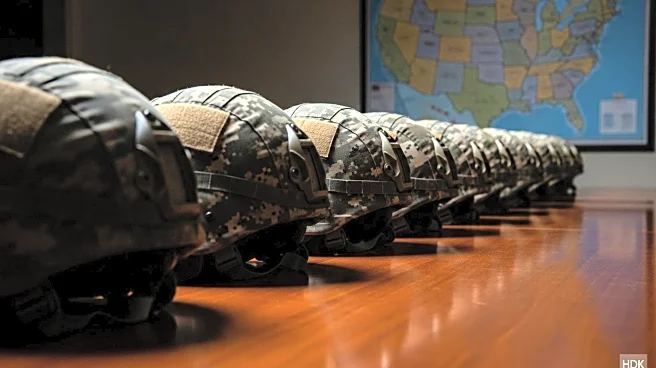What's Happening?
Following the deployment of National Guard troops in Washington, D.C., President Trump is contemplating extending this strategy to other major cities like Chicago and New Orleans. The deployment aims to address crime, although crime rates in D.C. have reportedly decreased. Residents express mixed feelings, with some supporting the increased security and others fearing the implications of federal control over local law enforcement.
Why It's Important?
The potential nationwide deployment of National Guard troops represents a significant shift in domestic policy, raising questions about federal authority and its impact on local governance. It highlights the tension between federal and local governments, especially in cities with Democratic leadership. The move could set a precedent for future administrations, affecting how crime and public safety are managed in urban areas.
What's Next?
If President Trump proceeds with deploying troops to other cities, it could lead to legal challenges and increased political tensions. Local leaders may resist federal intervention, advocating for their autonomy in managing public safety. The situation could also spark public protests and debates about civil liberties and the role of the military in civilian life.
Beyond the Headlines
The deployment of National Guard troops in civilian areas could have broader implications for civil rights and the perception of federal authority. It may influence public trust in government institutions and affect the relationship between citizens and law enforcement agencies.








